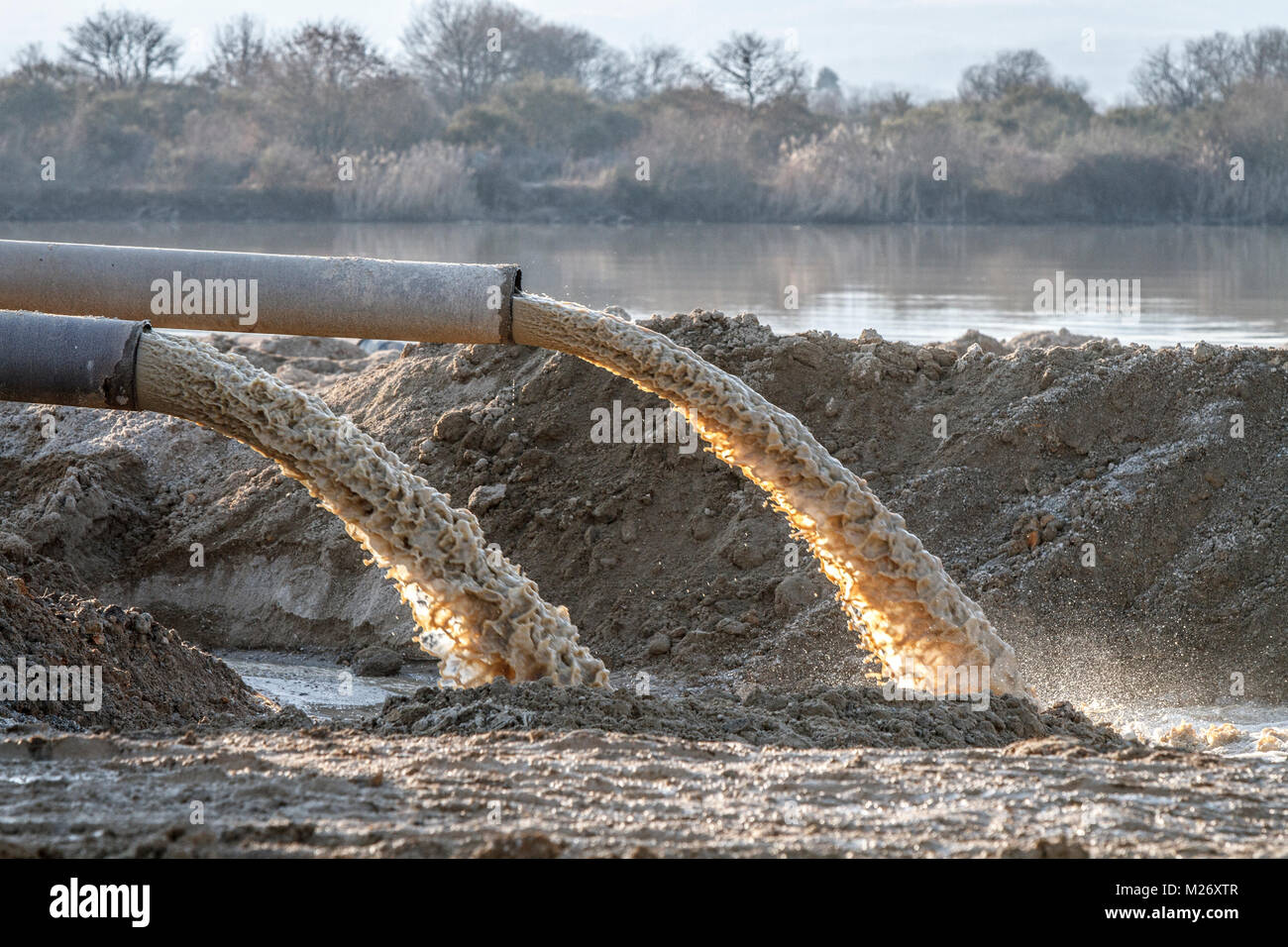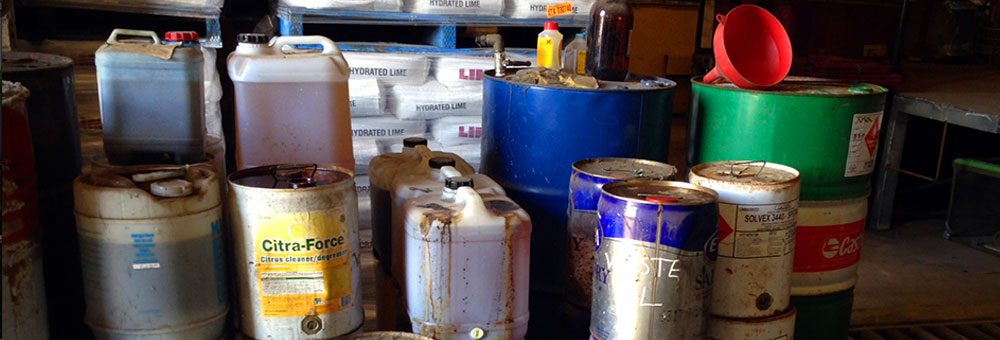Professional Liquid Waste Removal Melbourne: Quick and Affordable Solutions
Professional Liquid Waste Removal Melbourne: Quick and Affordable Solutions
Blog Article
Comprehending the Comprehensive Refine of Liquid Waste Disposal: Best Practices and Environmental Impact Factors To Consider
The monitoring of fluid waste disposal is a multifaceted concern that needs a detailed understanding of different finest practices and their linked environmental impacts. From the kinds of liquid waste produced to the approaches used for collection, treatment, and last disposal, each action plays an essential duty in protecting ecological communities and public health and wellness.
Kinds of Fluid Waste
Recognizing the different sorts of fluid waste is crucial for efficient monitoring and disposal practices. Liquid waste can be broadly classified right into several types, each needing distinct handling and therapy strategies.
Industrial liquid waste typically contains dangerous materials, consisting of heavy steels, solvents, and chemicals, generated during producing procedures. These wastes necessitate stringent regulatory conformity to shield human health and the atmosphere. Domestic liquid waste primarily refers to wastewater produced from homes, consisting of sewage and greywater, which, although less harmful, can still present substantial risks if incorrectly handled.
Agricultural fluid waste, consisting of runoff from farms, typically consists of plant foods and pesticides that can lead to environmental degradation if not treated effectively. Clinical fluid waste, produced from healthcare facilities, includes contaminated liquids such as bodily fluids and chemicals, requiring specialized disposal techniques to avoid infection and environmental contamination.
Finally, oil and oil waste, generally created by restaurants and automotive sectors, can trigger serious blockages in drain systems if not managed appropriately. Comprehending these groups helps with targeted strategies for therapy, compliance with policies, and reliable disposal approaches, ultimately advertising environmental sustainability and public wellness safety and security.

Collection Techniques
Effective collection methods are important for the appropriate management of fluid waste, making certain that it is collected securely and effectively before therapy or disposal. Different strategies are utilized depending on the kind of fluid waste generated, the volume, and the certain attributes of the waste.
One typical technique is making use of dedicated collection storage tanks or sumps, which are designed to record liquid waste at the source. These systems typically include pumps that assist in the transfer of waste to larger storage space containers or therapy centers. In addition, mobile collection systems equipped with vacuum innovation are used in scenarios where waste is created intermittently or in hard-to-reach places.
For commercial settings, closed-loop systems can effectively lessen spills and leaks, permitting the recuperation and reuse of liquid waste. It is likewise necessary to educate workers on correct collection protocols to reduce threats related to unsafe substances.
In addition, applying routine maintenance schedules for collection equipment ensures ideal efficiency and security. The combination of sophisticated tracking systems can enhance collection efficiency by giving real-time data on waste levels and prospective hazards. On the whole, effective collection approaches are foundational to lasting fluid waste monitoring methods.
Treatment Processes
Therapy processes play an essential function in the management of liquid waste, changing possibly hazardous products right into recyclable sources or risk-free effluents - liquid waste disposal. These processes can be generally categorized into physical, chemical, and organic methods, each customized to resolve details contaminants present in the waste stream
Physical therapy techniques, such as sedimentation and filtering, job by eliminating suspended solids and particulate matter. These methods are usually the very first action in the treatment chain, successfully minimizing the load on succeeding processes. Chemical treatments include using reagents to reduce the effects of dangerous substances, speed up heavy steels, or oxidize natural pollutants, therefore enhancing the security of the effluent.
Biological treatment procedures, including triggered sludge systems and anaerobic food digestion, maximize the natural abilities of bacteria to deteriorate natural issue. These methods are specifically effective for wastewater including naturally degradable contaminants. Advanced therapy innovations, such as membrane purification and advanced oxidation procedures, are increasingly employed to achieve higher levels of filtration.
Integrating a combination of these therapy approaches not only makes certain conformity with governing standards but also advertises ecological sustainability by recuperating valuable sources from fluid waste.
Disposal Options
How can companies guarantee the liable and safe disposal of fluid waste? Efficient disposal choices are essential for protecting public wellness and the setting. The main techniques consist of land incineration, therapy, and disposal followed by discharge right into local wastewater systems.
Land disposal includes the mindful containment of liquid waste in designated land fills, ensuring that it does not leach right into surrounding dirt or water. Incineration, on the other hand, topics fluid waste to heats, transforming it into ash and gases, which require appropriate filtering to lessen discharges. This method appropriates for dangerous wastes that can not be this page treated with typical ways.
In situations where fluid waste can be dealt with, organizations might decide for organic or chemical therapy procedures to neutralize harmful components prior to releasing the treated effluent into metropolitan systems. This path commonly lines up with regulative demands, guaranteeing that the effluent meets security standards.
Ultimately, organizations need to perform comprehensive evaluations of each disposal option to establish its feasibility, considering elements such as waste composition, regulative conformity, and potential dangers to wellness and the setting. By picking proper disposal approaches, services can contribute to a liable waste monitoring technique.
Environmental Influence
The ecological effect of fluid waste disposal is an important consideration for companies seeking to reduce their eco-friendly impact. Additionally, the discharge of unattended or inadequately treated waste into surface waters can result in eutrophication, leading to oxygen depletion and the subsequent death of fish and other organisms.

To alleviate these effects, companies have to take on ideal practices such as executing strenuous waste therapy procedures, promoting recycling and reuse, and adhering to regulatory criteria. By taking a positive technique to liquid waste administration, entities can dramatically lower their ecological impact while sustaining sustainable development objectives. Inevitably, a thorough understanding of the ecological impacts associated with fluid garbage disposal is necessary for notified decision-making and responsible stewardship of all-natural resources.
Final Thought
Effective monitoring of fluid waste is essential for safeguarding environmental honesty and public wellness. By adopting finest techniques in disposal, therapy, and collection, along with adherence to regulative additional hints criteria, the capacity for hazardous contamination of communities can be substantially decreased. Continual advancements in modern technology and processes add to lasting waste management efforts. Inevitably, an extensive understanding of liquid garbage disposal not just reduces ecological effects however additionally fosters a commitment to liable resource monitoring and environmental stewardship.
The administration of liquid waste disposal is a diverse issue that calls for a comprehensive understanding of different ideal techniques and their connected ecological influences. From the kinds of fluid waste created to the methods utilized for collection, treatment, and final my response disposal, each step plays an essential function in guarding ecosystems and public health.The environmental influence of liquid waste disposal is an important factor to consider for companies seeking to reduce their environmental impact. Inevitably, a thorough understanding of the ecological effects connected with fluid waste disposal is crucial for educated decision-making and liable stewardship of natural resources.
Ultimately, a detailed understanding of fluid waste disposal not just alleviates ecological effects however also cultivates a dedication to responsible source monitoring and environmental stewardship.
Report this page